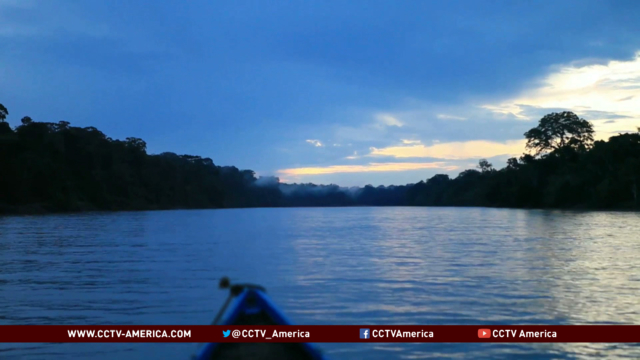In December, Peru will host the 20th annual United Nations Framework Convention on Climate Change. The goal of the meeting is to work toward developing a new legally binding international treaty that will replace the 1997 Kyoto Protocol, which expires in 2020. CCTV’s Dan Collyns reports.
Peru’s rainforests, mountains and deserts make it one of the most mega-bio diverse countries in the world. That’s precisely what makes it so vulnerable to climate change. Peru is also home to 70 percent of the world’s tropical glaciers which are melting fast due to a rise in global temperatures.
A climate change route has been created tourists no longer climb the glaciers– rather, they are given a guided tour showing them how much they’ve melted in recent years.

Peru to Host Climate Change Conference in December
In December, Peru will host the 20th annual United Nations Framework Convention on Climate Change. The goal of the meeting is to work toward developing a new legally binding international treaty that will replace the 1997 Kyoto Protocol, which expires in 2020. CCTV's Dan Collyns reports.Peru’s ocean has some of the richest fishing stocks in the world but increasingly fluctuating temperatures mean a good catch is not always guaranteed and that is having an economic impact. More than 190 countries say they are committed to tackling climate change including Peru.
But much will depend on the United States and China who are the biggest emitters. China says, as a developing nation, it is less responsible for causing climate change than wealthier, developed nations.
Today, as the world’s biggest emitter of carbon dioxide, China says it’s committed to cutting emissions but insists it has the right to industrialize just as the U.S. did. Meanwhile the host nation plans to lead by example.
While Peru cannot guarantee the success of the potentially crucial summit, it’s one developing nation which has pledged to grow sustainably and keep its carbon emissions low.
 CGTN America
CGTN America
